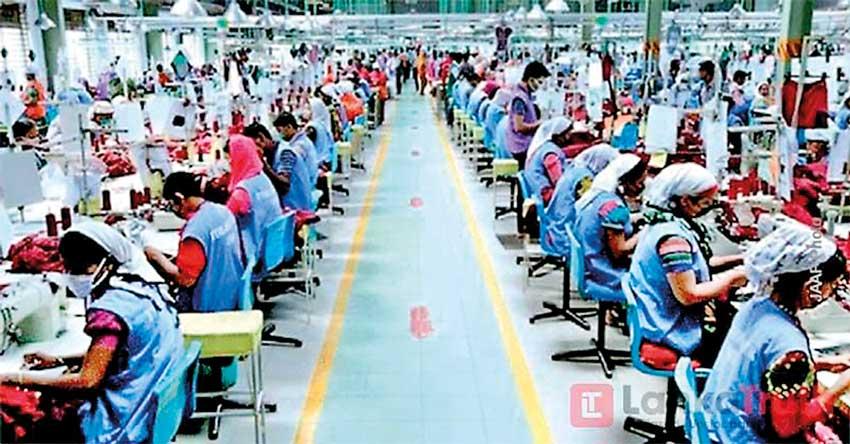10 Nov 2022 - {{hitsCtrl.values.hits}}

Many female workers in the apparel industries in Katunayake free trade zone are finding it pretty hard to afford nutritious food to keep them healthy, mainly due to the present economic woes
 Your article on November 1 Daily Mirror triggered my memory regarding an intervention we tried in the early 1990s to correct this problem. I am writing this hoping that it will give some food for thought. I was Chairman of the Employees’ Trust Fund Board (ETF) and was summoned one day by President Premadasa. There were a couple of officials also present. The President had been briefed about the problem of low birth-weight babies of Sri Lanka’s working women. He was very concerned and wanted the ETF to study this and implement some intervention for the ETF members who were employees of the private sector. It was noted that the low birth-weight problem was more severe in Sri Lanka than in the neighbouring countries. It was also pointed out that the percentage of employed women was higher than in neighbouring countries, which may be why.
Your article on November 1 Daily Mirror triggered my memory regarding an intervention we tried in the early 1990s to correct this problem. I am writing this hoping that it will give some food for thought. I was Chairman of the Employees’ Trust Fund Board (ETF) and was summoned one day by President Premadasa. There were a couple of officials also present. The President had been briefed about the problem of low birth-weight babies of Sri Lanka’s working women. He was very concerned and wanted the ETF to study this and implement some intervention for the ETF members who were employees of the private sector. It was noted that the low birth-weight problem was more severe in Sri Lanka than in the neighbouring countries. It was also pointed out that the percentage of employed women was higher than in neighbouring countries, which may be why.
It was also revealed that many young girls working in the Katunayaka free trade zone were undernourished and living in cramped unhygienic conditions. The ETF could only implement an intervention that would benefit its members, and we decided to study this further. Sri Lanka’s top nutritionists were consulted, and the concluding session decided to.
I tried the nutrition programme at the ETF Board and later at Dankotuwa Porcelain. At the end of three months, the results were very encouraging. Employees reported reduced tiredness, more energy, absence of regular colds etc. Some dropped out of the programme prematurely, claiming that they had gained weight or did not get their monthly cold which they believe flushed out the toxins in the sinuses.
We also conducted seminars on nutrition at the BOI with expert resource persons. The attendees were highly interested, and I remember they had many questions to ask. The intervention on a nationwide basis has to be decided on by policymakers. I encourage all employers concerned about their human resources to implement something similar
I do not have access to statistics on how many employers implemented this programme. Still, I know that some did, and some modified the programme and implemented it.
We also conducted seminars on nutrition at the BOI with expert resource persons. The attendees were highly interested, and I remember they had many questions to ask. The intervention on a nationwide basis has to be decided on by policymakers. I encourage all employers concerned about their human resources to implement something similar.
In addition to the nutrition programme, we planned to build some dormitories to provide more clean and secure accommodation. This was shot down by the area politicians who feared their supporters would lose income from renting out their homes. Instead, we provided low-interest loans to expand their rooms and build new wells and toilets, thus improving the living conditions.
Another incident I recall with great satisfaction from my ETF days was the medical clinic I started. Even senior female officers fell ill frequently, and their kids fell sick often. This disrupted the smooth flow of our work. I found that most were ignorant of how to prevent and handle the sicknesses of their kids. I was well versed in what to do regarding kids, having read the famous Dr. Spocks book from cover to cover. My son’s paediatrician calling me an “ignorant man” triggered this. She said, “Don’t come here again without reading Dr. Spock”.
I organised several sessions for the staff by getting the services of experts from a nearby private hospital and the Department of Health. These sessions were very well received, and many repeat sessions were held. All reported that they realised how ignorant they were before.
When confronted with a medical problem, the staff had to visit expensive medical channels, and many preferred to ignore their symptoms. I compared the superb medical facilities I enjoyed at the Ceylon Tyre Corporation, where I worked as an Industrial Engineer. It was common for factories to have a medical centre. It was rare for offices of that type to have any medical facility. I could not understand why offices with large staff cadres do not have a medical centre. I set up a weekly clinic and obtained the service of the medical officer of the Occupational Health Division of the Labour Department. Since our two institutions were both under the same Ministry, the approval was easy.
Soon after the first clinic, the doctor called me and said there was a serious issue regarding a pregnant lady. If she was not given a blood transfusion soon, both mother and child would be in danger. We arranged the appropriate intervention, and the mother and child did well. When I was leaving the ETF, the doctor called me and asked what my most outstanding achievements at ETF were. I rattled a list of achievements of our team, and he said, “No, your greatest achievement at ETF was the clinic you initiated and saved a life”. I had to agree.
Sunil G Wijesinha
Former President, National Chamber of Commerce of Sri Lanka
Former President, Employers’ Federation of Ceylon
Management Consultant and promoter of Japanese Management for 4 decades
10 Jan 2025 53 minute ago
10 Jan 2025 58 minute ago
10 Jan 2025 2 hours ago
10 Jan 2025 2 hours ago
10 Jan 2025 2 hours ago